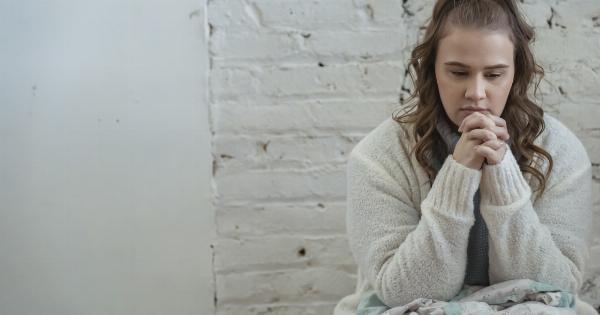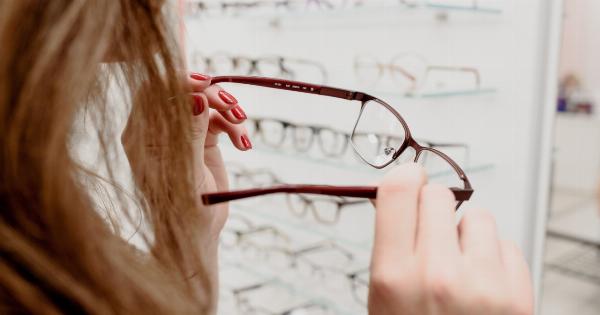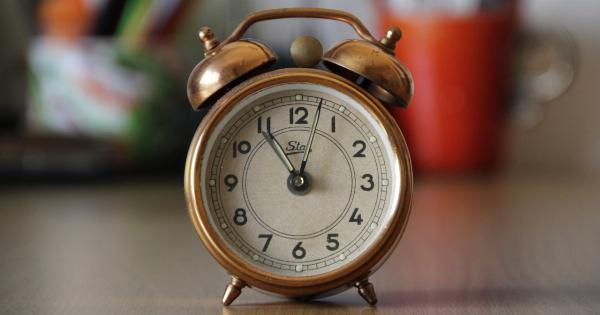Understanding human behavior can be a complex endeavor, as many factors influence our reactions, decisions, and preferences.
When it comes to the dynamics between men and women, there has long been speculation about whether there are specific days when women are more likely to give in to persistent attention. While some may attribute this notion to stereotypes or outdated beliefs, it’s worth exploring the topic from a psychological perspective.
In this article, we will delve into the factors that can influence women’s receptiveness to persistent attention and examine whether there is any truth to the claim that certain days make them more susceptible.
1. Factors that influence receptiveness
Before diving into the concept of specific days, it is important to understand the various factors that can influence a person’s receptiveness to persistent attention.
These factors can be both internal and external, psychological and contextual, and can vary greatly from one individual to another.
1.1 Emotional state: A person’s emotional state can greatly affect their receptiveness to attention. If a woman is feeling stressed, tired, or anxious, she may be less inclined to engage with persistent attention.
On the other hand, if she is feeling happy, confident, and content, she may be more open to such advances.
1.2 Relationship status: The presence or absence of a romantic partner can also impact receptiveness.
Women in committed relationships may be less likely to entertain persistent attention, while those who are single or experiencing relationship difficulties may be more open to it.
1.3 Personal boundaries: Every person has their own set of personal boundaries. These boundaries dictate what they are comfortable with and what they are not.
If persistent attention violates these boundaries, regardless of the day, a woman is less likely to engage with it.
1.4 Societal and cultural influences: Societal norms and cultural factors play a significant role in determining how women respond to attention.
Some societies may encourage women to be more receptive, while others may discourage or stigmatize such behavior. These influences can shape individual responses to persistent attention.
2. The myth of specific days
While some people claim that there are certain days when women are more likely to cave to persistent attention, it is essential to recognize that this belief is rooted in stereotypical assumptions and lacks scientific evidence.
Psychology demonstrates that human behavior is far too complex to be determined solely by the day of the week. Receptiveness to attention is multifaceted and depends on a wide range of factors such as those mentioned earlier.
Attributing women’s behavior to specific days perpetuates harmful stereotypes and fails to acknowledge their autonomy and agency in decision-making.
It is crucial to consider individual differences when examining any claims regarding behavior patterns.
3. The role of hormone fluctuations
While specific days may not hold significant weight in determining receptiveness, it is worth exploring the influence of hormone fluctuations on women’s behavior.
Hormones, such as estrogen and progesterone, fluctuate in a cyclical manner throughout a woman’s menstrual cycle, which can impact mood, emotions, and behavior.
During the fertile phase of the menstrual cycle, typically around ovulation, women may experience an increase in sexual desire and be more open to attention.
This increase in receptiveness, however, is not limited to specific days of the week but rather tied to hormonal fluctuations within an individual’s cycle. It is important to note that not all women experience these fluctuations in the same way, and individual differences play a significant role.
4. The power of consent and respect
Regardless of the day or the hormonal fluctuations a woman may experience, it is crucial to emphasize the importance of consent and respect in any social interaction.
Persistent attention should never be forced or pursued after clear indications of disinterest or rejection. Consent should always be sought and respected, regardless of external factors, societal messages, or personal desires.
It is essential to foster a culture that values and upholds consent and acknowledges the agency of all individuals in making their own decisions.
Encouraging open communication and respect ensures healthier relationships and interactions between men and women.
5. Empowering women’s autonomy
Instead of perpetuating the notion that women are more likely to cave to persistent attention on certain days, it is vital to focus on empowering women’s autonomy and agency.
Women should have the freedom to express their boundaries and make decisions based on their own preferences and needs.
Understanding and respecting individual differences, emotional states, and personal boundaries are crucial aspects of fostering healthier connections between men and women.
By challenging stereotypes and promoting open dialogue, we can create a more inclusive and empowering environment for everyone.
6. Conclusion
Exploring the idea of whether women are more likely to cave to persistent attention on certain days reveals the complexity of human behavior and interaction.
While various factors can influence receptiveness, specific days hold little significance in determining such responses.
Understanding and respecting individual differences, emotional states, personal boundaries, and the role of consent are vital in fostering healthy relationships and communication between men and women.
It is crucial to empower women’s autonomy and agency, ensuring they have the freedom to make decisions based on their own preferences and needs.
Instead of relying on stereotypes and assumptions, let us strive to create a society where mutual respect, consent, and open dialogue prevail, fostering healthier connections between individuals.































